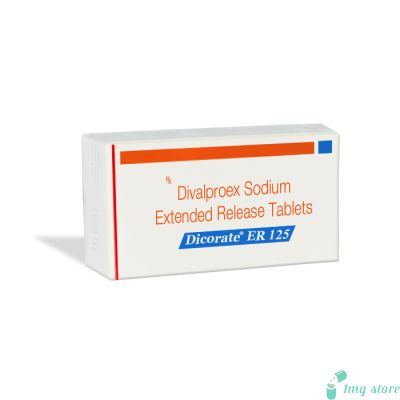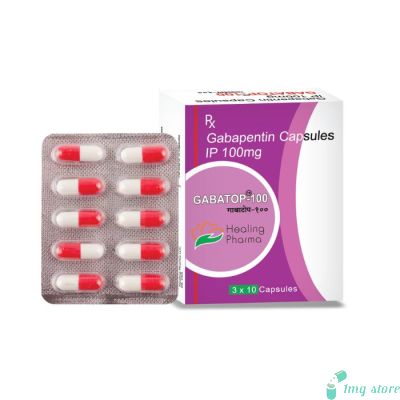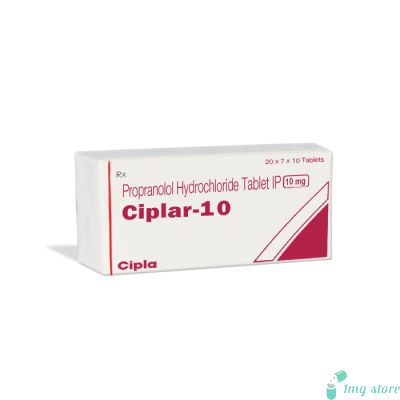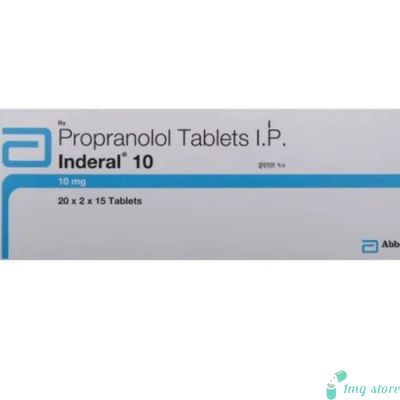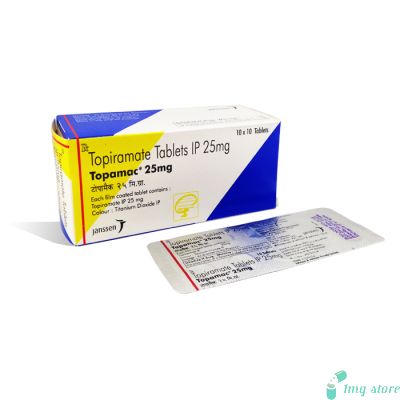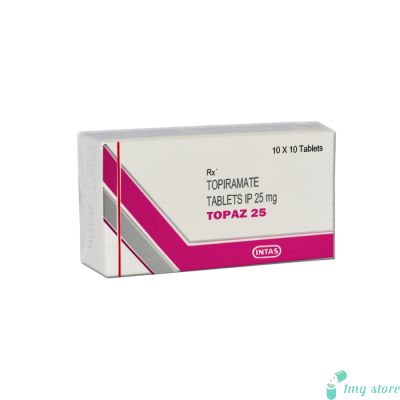Gabapin Tablet (Gabapentin)
Buy Gabapin Tablet, Gabapin Tablet also known by its generic name Gabapentin is a medication primarily used to treat epilepsy and neuropathic pain. It belongs to a class of drugs called anticonvulsants or antiepileptics. Gabapentin Tablet works by affecting certain chemicals and nerves in the body that are involved in seizures and pain signals.
What is Gabapin Tablet (Gabapentin)?
Gabapin Tablet, also known by its generic name Gabapentin, is a medication primarily used to treat Epilepsy and neuropathic pain. It belongs to a class of drugs called anticonvulsants or antiepileptics. Gabapentin works by affecting certain chemicals and nerves in the body that are involved in seizures and pain signals. It is also sold under the brand name Neurontin and comes under the Neurology Drugs.
Gabapin Tablet comes in the form of oral tablets or capsules. It is available in various strengths, typically ranging from 100 mg to 800 mg. The dosage prescribed by a healthcare professional depends on the condition being treated, the individual's response to the medication, and other factors. Gabapin Tablet is commonly used to control seizures in epilepsy, including partial Seizures and generalized tonic-clonic seizures. It can also be prescribed to manage neuropathic pain caused by conditions such as diabetic neuropathy, postherpetic neuralgia (shingles pain), and peripheral neuropathy.
It is important to follow the prescribed dosage and instructions provided by your doctor. Gabapin Tablet is usually taken orally with or without food. The dosage may be gradually increased over time to achieve the desired therapeutic effect.
Here are some of the potential benefits of the Gabapentin Tablet:
Epilepsy Management: Gabapentin Tablet is commonly prescribed to control seizures in epilepsy. It can help reduce the frequency and intensity of seizures, allowing individuals to better manage their condition and improve their quality of life.
Neuropathic Pain Relief: Gabapentin Tablet is effective in managing neuropathic pain caused by conditions such as diabetic neuropathy, postherpetic neuralgia (shingles pain), and peripheral neuropathy. It helps alleviate pain by modulating nerve signals and reducing abnormal electrical activity in the nerves.
Fibromyalgia Treatment: Gabapentin Tablet may be used as an adjunctive treatment for fibromyalgia, a chronic pain disorder characterized by widespread musculoskeletal pain, fatigue, and sleep disturbances. It can help reduce pain sensitivity and improve sleep quality in individuals with fibromyalgia.
Anxiety and Mood Disorders: Gabapentin Tablet has shown potential in the treatment of Anxiety disorders, including generalized anxiety disorder and social anxiety disorder. It may also be beneficial for individuals with bipolar disorder or mood disorders as an adjunctive treatment to stabilize mood and reduce the associated anxiety.
Restless Legs Syndrome (RLS): Gabapentin Tablet can provide relief from the uncomfortable sensations and the urge to move the legs which are characteristic of restless legs syndrome. It helps calm the nerves and reduce the sensations, allowing for better sleep and improved quality of life.
Alcohol Withdrawal Symptoms: Gabapentin Tablet may be prescribed to manage alcohol withdrawal symptoms, such as anxiety, agitation, and insomnia. It can help alleviate these symptoms and support individuals in their recovery from alcohol dependence.
Off-Label Uses: Gabapentin Tablet is sometimes used off-label to treat other conditions, such as migraine headaches, hot flashes associated with menopause, and certain psychiatric disorders. However, it is important to consult with a healthcare professional regarding the appropriateness and safety of off-label use.
When taking Gabapentin Tablet, it is important to keep the following safety advice in mind:
Take Gabapentin Tablet exactly as prescribed by your healthcare professional. Do not alter the dosage or stop taking the medication without consulting your doctor. Abruptly discontinuing the medication can lead to withdrawal symptoms.
Before starting Gabapentin Tablet, inform your doctor about your complete medical history, including any allergies, kidney problems, or other pre-existing conditions. This information will help your doctor determine if Gabapentin Tablet is suitable for you and adjust the dosage if needed.
Find the best product at 1mgstore.com your most reliable pharmacy. Buy Gabapentin Tablets Online and check availability on our website and Gabapentin Tablets prices for quick and fast delivery to your doorsteps.
Gabapentin Tablet can cause drowsiness and dizziness. It is advisable to avoid consuming alcohol or taking other sedatives while on this medication, as it can enhance these effects and increase the risk of accidents or falls.
Until you know how Gabapentin Tablet affects you, be cautious when engaging in activities that require mental alertness, such as driving or operating heavy machinery. If you experience drowsiness, dizziness, or other side effects that impair your ability to perform such activities, refrain from doing them.
If you are pregnant, planning to become pregnant, or breastfeeding, discuss the risks and benefits of taking Gabapentin Tablet with your doctor. It is important to weigh the potential benefits against any potential risks to the developing fetus or the infant. Keep Gabapentin Tablet in its original packaging and store it at room temperature, away from excessive heat and moisture. Keep it out of reach of children and pets.
If you have any unused or expired Gabapentin Tablets, consult with your pharmacist or healthcare provider for appropriate disposal methods. Do not flush it down the toilet or throw it in the regular trash.
Gabapentin, sold under various brand names including Gabapin, has multiple uses.
Epilepsy: Gabapentin is primarily prescribed as an antiepileptic medication to manage and control seizures. It can be effective for different types of seizures, including partial seizures and generalized tonic-clonic seizures.
Neuropathic Pain: Gabapentin is commonly used to treat neuropathic pain, which is caused by damage or dysfunction of nerves. It can be effective in conditions such as diabetic neuropathy, postherpetic neuralgia (pain following shingles), and peripheral neuropathy.
Fibromyalgia: Gabapentin may be prescribed as an adjunctive treatment for fibromyalgia, a chronic disorder characterized by widespread pain, fatigue, and sleep disturbances. It can help alleviate pain and improve sleep quality in some individuals.
Restless Legs Syndrome (RLS): Gabapentin can be used to relieve the symptoms of restless legs syndrome, a condition characterized by an irresistible urge to move the legs, usually accompanied by uncomfortable sensations. It helps reduce the sensations and improve sleep quality.
Anxiety Disorders: Gabapentin may be prescribed off-label as an adjunctive treatment for certain anxiety disorders, such as generalized anxiety disorder (GAD) and social anxiety disorder. It can help reduce anxiety symptoms and promote overall well-being.
Off-Label Uses: Gabapentin is sometimes used off-label to manage other conditions such as migraines, hot flashes associated with menopause, certain psychiatric disorders, and alcohol withdrawal symptoms. The use of Gabapentin for these conditions should be determined by a healthcare professional.
Gabapentin 300mg tablets, like any medication, can cause side effects.
Common side effects of Gabapentin 300mg tablets can include drowsiness, dizziness, fatigue, headache, blurred vision, coordination difficulties, and dry mouth. These side effects are usually mild and temporary, but if they persist or worsen, it is important to inform your healthcare professional.
Gabapentin can affect the central nervous system (CNS) and may cause symptoms such as confusion, difficulty concentrating, memory problems, and mood changes. If you experience any significant changes in your mental state, it is important to consult your doctor. Some individuals may experience gastrointestinal side effects, including nausea, vomiting, diarrhea, and stomach pain. Taking Gabapentin with food or adjusting the dosage as directed by your doctor may help alleviate these symptoms.
In rare cases, Gabapentin can cause allergic reactions such as rash, itching, swelling, severe dizziness, or trouble breathing. If you experience any signs of an allergic reaction, seek immediate medical attention. If Gabapentin 300mg tablets are abruptly discontinued, it may lead to withdrawal symptoms such as anxiety, insomnia, nausea, sweating, and restlessness. It is important to follow your doctor's instructions on tapering off the medication if you need to discontinue its use. Gabapentin may also rarely cause side effects such as weight gain, abnormal liver function tests, low blood sodium levels, and changes in blood sugar levels. It is important to report any unusual symptoms to your healthcare professional.
Q: What is the recommended Gabapentin dosage for nerve pain?
A: The recommended Gabapentin dosage for nerve pain can vary depending on various factors such as the severity of the pain, individual response, and the specific condition being treated. Typically, the initial dosage starts low and is gradually increased over time.
Q: How long does it take for Gabapentin to work for nerve pain?
A: The time it takes for Gabapentin to work for nerve pain can vary from person to person. Some individuals may experience relief within a few days, while others may require several weeks of consistent use to notice a significant improvement in their pain symptoms.
Q: Can Gabapentin be used for conditions other than nerve pain?
A: Yes, Gabapentin can be prescribed for conditions other than nerve pain. It is also commonly used to treat epilepsy, including partial seizures and generalized tonic-clonic seizures. Additionally, it may be used as an adjunctive treatment for fibromyalgia, restless legs syndrome (RLS), certain anxiety disorders, and to manage alcohol withdrawal symptoms.
Q: Can I abruptly stop taking Gabapentin for nerve pain?
A: It is generally not recommended to abruptly stop taking Gabapentin for nerve pain without consulting your healthcare professional. Abrupt discontinuation of the medication can lead to withdrawal symptoms such as anxiety, insomnia, nausea, and sweating.
Here are some common drug interactions associated with Gabapentin Tablet:
Opioids: Combining Gabapentin Tablet with opioids, such as codeine, oxycodone, or morphine, can increase the risk of central nervous system (CNS) depression, including severe drowsiness, respiratory depression, and even coma. Your doctor may need to adjust the dosages of both medications to minimize the risk.
Antacids: Antacids that contain aluminum or magnesium, often used to relieve heartburn or indigestion, can reduce the absorption of Gabapentin tablets. It is advisable to separate the doses of Gabapentin Tablet and antacids by at least two hours to prevent this interaction.
Naproxen: Concurrent use of Gabapentin Tablet with naproxen, a nonsteroidal anti-inflammatory drug (NSAID), may increase the risk of CNS-related side effects, such as drowsiness or dizziness. Your doctor will monitor your response to these medications and adjust the dosages if necessary.
Cimetidine: Cimetidine, a medication used to reduce stomach acid production, can potentially increase the levels of Gabapentin Tablets in the body. Your doctor may need to monitor your response to Gabapentin Tablet and adjust the dosage accordingly.
CNS Depressants: Other drugs or substances that have a sedative effect on the central nervous system, such as benzodiazepines, sleep medications, or muscle relaxants, may enhance the drowsiness caused by Gabapentin Tablets. It is important to use these medications cautiously and under the guidance of your healthcare professional.
Diuretics: Diuretics, also known as water pills, can alter the concentration of Gabapentin Tablets in the blood. Your doctor may need to monitor your response to both medications and adjust the dosages accordingly.
Alcohol: Combining Gabapentin Tablet with alcohol can increase the sedative effects of both substances and impair cognitive and motor functions. It is advisable to avoid alcohol consumption while taking Gabapentin tablets.
| Manufacturer | : | Intas Pharma, India |
| Equivalent Brand | : | Neurontin |
| Generic Search | : | Gabapentin |








